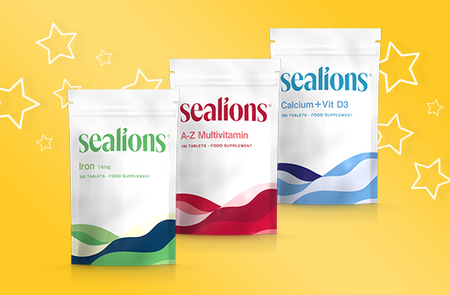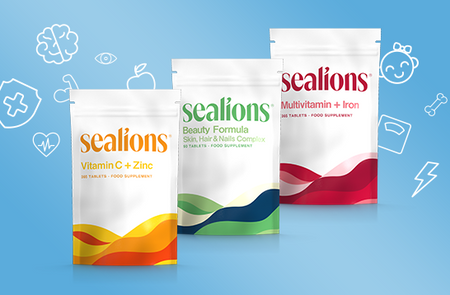
World Breastfeeding Week: The Role of Vitamin D in Breastfeeding
Breastfeeding is truly one of nature's wonders. It provides everything a baby needs to grow strong and healthy in the first six months such as nutrients, antibodies, and creates a wonderful bond. World Breastfeeding Week is here, people all around the globe celebrate and promote the benefits of breastfeeding. This campaign shines a spotlight on how breastfeeding is great for both babies and mothers.
Something doesn't always get the attention it should: Vitamin D. Let’s dive in and chat about why vitamin D is so beneficial for breastfeeding and how we can make sure both mum and baby get enough of this essential nutrient.
Vitamin D is key for keeping our bones strong and our immune systems[1] in good shape. It helps our bodies absorb calcium[2], which is super important for building strong bones and teeth. For babies, getting enough vitamin D helps to avoid rickets[3] which is a condition that makes bones weak.
Many breastfeeding babies don’t get enough vitamin D from breast milk alone. This can also be an issue for babies who don't get much sunlight or have darker skin – due to more melanin.
There are some quick and simple ways to make sure babies get their needed vitamin D. Paediatricians recommend giving breastfed babies a daily vitamin D supplement of 400 IU [4] starting from the first few days of birth.
Also, just a few minutes outside each day can make a big difference. But, of course, you’ll want to be careful with delicate baby skin and avoid too much sun.
Mothers, you can play a big role in this too. Keeping your own vitamin D levels up can help increase the amount of vitamin D in your breast milk. Eating foods rich in vitamin D like fatty fish, fortified dairy products, and eggs, or taking a supplement if needed, can make a big difference.
-
[1] Aranow C. Vitamin D and the immune system. J Investig Med. 2011 Aug;59(6):881-6. doi: 10.2310/JIM.0b013e31821b8755. PMID: 21527855; PMCID: PMC3166406.
[2] Khazai N, Judd SE, Tangpricha V. Calcium and vitamin D: skeletal and extraskeletal health. Curr Rheumatol Rep. 2008 Apr;10(2):110-7. doi: 10.1007/s11926-008-0020-y. PMID: 18460265; PMCID: PMC2669834.
[3]Sahay M, Sahay R. Rickets-vitamin D deficiency and dependency. Indian J Endocrinol Metab. 2012 Mar;16(2):164-76. doi: 10.4103/2230-8210.93732. PMID: 22470851; PMCID: PMC3313732.
[4] Mutlu GY, Kusdal Y, Ozsu E, Cizmecioglu FM, Hatun S. Prevention of Vitamin D deficiency in infancy: daily 400 IU vitamin D is sufficient. Int J Pediatr Endocrinol. 2011;2011(1):4. doi: 10.1186/1687-9856-2011-4. Epub 2011 Jun 28. PMID: 21860631; PMCID: PMC3159138.
Tagged:









